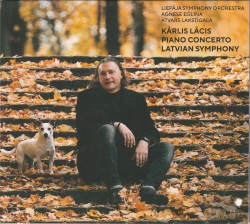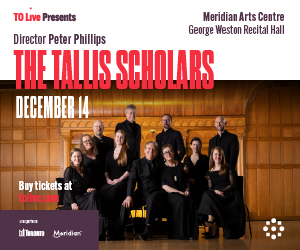 Kārlis Lācis – Piano Concerto; Latvian Symphony
Kārlis Lācis – Piano Concerto; Latvian Symphony
Agnese Eglina; Artūrs Noviks; Liepāja Symphony Orchestra; Atvars Lakstīgala
LMIC SKANI 133 (skani.lv)
“Extreme emotions” and “maximalism” are well-chosen words that Latvian composer Kārlis Lācis (b.1977) uses to describe his 30-minute Piano Concerto (2013). The opening Allegro alternates fierce orchestral barrages with rapid, folk-dance-flavoured melodies played by pianist Agnese Eglina; both elements then merge, building to a motorized, near-cacophonous climax. In Crossroad, the piano’s slow walking pace over grey orchestral chords suggests a pensive stroll through a misty landscape. Despair mixes brutal, wildly syncopated polyrhythms, aggressive brass, percussion and musicians’ shouts. Lullaby quotes a traditional melody, but at an energized velocity and volume antithetical to sleep. The rustic romp finally subsides; the lullaby, now gentle and sweet, ends the concerto.
Although lacking a stated program, Lācis’ 37-minute Latvian Symphony (2019) features compelling, evocative episodes reflecting the movements’ titles. Paraphrases of the “Fate” fanfares from Tchaikovsky’s Fourth Symphony open The Night is Dark; a propulsive struggle ensues, ending peacefully. The Lake shimmers Impressionistically, framing a brass-heavy, grandiosely imposing central section. Of the rumbustious folk tunes in the Latvian Scherzo, amply spiked with dissonances, Lācis says, “I took all the songs that are still in my head from childhood and I threw them all together.” Hurry, Dear Sun is clearly Nature-music: throbbing “forest murmurs” slowly crescendo to a grand, climactic sunrise; a brief, violent storm bursts, followed by folk-song-based music of relief and thanksgiving, ending with the musicians’ unaccompanied, chant-like humming.
Conductor Atvars Lakstīgala generates real excitement in these very colourful works. Enthusiastically recommended!



